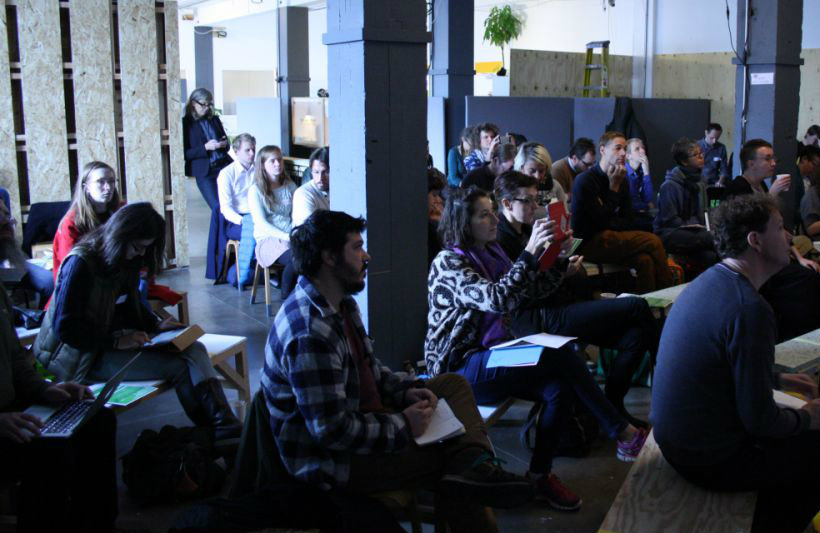By: Anita Makri
Send to a friend
The details you provide on this page will not be used to send unsolicited email, and will not be sold to a 3rd party. See privacy policy.
You've probably heard of COP21 — the UN negotiations on climate change coming up in Paris in December — but have you heard of POC21? If they look like negative images of each other, that's not very far from the truth.
Proof Of Concept 21 was set up as a temporary innovation camp, run over several weeks earlier this year at a castle not far from Paris. More than a hundred designers, engineers and scientists gathered there to prototype open-source solutions for a fossil-free, zero-waste society that should become “the new normal”, according to co-founder Justyna Swat.
Maybe it’s more about increasing the density of the connections between the various grassroots initiatives.
Adrian Smith, University of Sussex
Swat presented POC21 at a small gathering of innovators working in 'makerspaces' and hackerspaces organised in London earlier this week by Adrian Smith, a professor of technology and society at the University of Sussex, United Kingdom.
She described an informal, experimental mood at POC21 that seemed diametrically opposed to typically contentious and serious policy talks — a contrast that the POC21 organisers acknowledge with their tongue-in-cheek, anagrammed name.
As I sat listening to project after project planting a tiny seed for a low-carbon future, I wondered whether the world is in fact innovating rather than negotiating its way out of the worst impacts of climate change.
There was a buzz of positivity in the room as experiences were shared about digital fabrication spaces (FabLabs and MAKLab) and other startups such as a free participatory repair of electronics to reduce waste (the Restart Project) and open-source tools to monitor and reduce energy use (the Open Energy Monitor).
The contrast between pockets of ingenuity at the grassroots and what goes on at the global policy level seems even sharper in the global South, where reuse of resources hardly needs special spaces — it’s more visibly a part of everyday life.
When the UN Conference on Sustainable Development (Rio+20) was in the works three years ago, it was these thoughts that precipitated our choice at SciDev.Net to highlight the role of grassroots innovation in the developing world.
Even though COP21 hardly came up during the event I kept thinking about the two worlds of innovation and negotiation — important in their own ways but running on parallel tracks. It was telling that the mere mention of “politics” brought a momentary deathly silence to the room. I talked with Smith about how to bridge the gap between them, how these hidden pockets of creativity can somehow reach across to that inaccessible world.
“Maybe they don’t need too much attention from the policy,” he said, because that attention comes with particular views about the need to create businesses or ‘scale up’ such inventions. And sometimes that misses the point, says Smith; what’s really important is to listen carefully to the grassroots, and there is something to learn about this from work in international development.
Adrian Smith on how international development experience can inform work with grassroots innovators.
“Maybe it’s more about increasing the density of the connections between the various grassroots initiatives,” Smith suggests, “and almost not worrying about the high-level attention.”
I think there is a role for researchers in helping to connect such initiatives, and I asked Smith about his own experience doing so. You need to grab institutional spaces for engagement to do that, he offered: think strategically about what’s helpful for people who run makerspaces and how to add something to their work. It needs training, and time for dialogue, and research that’s responsive to a faster pace of working.














